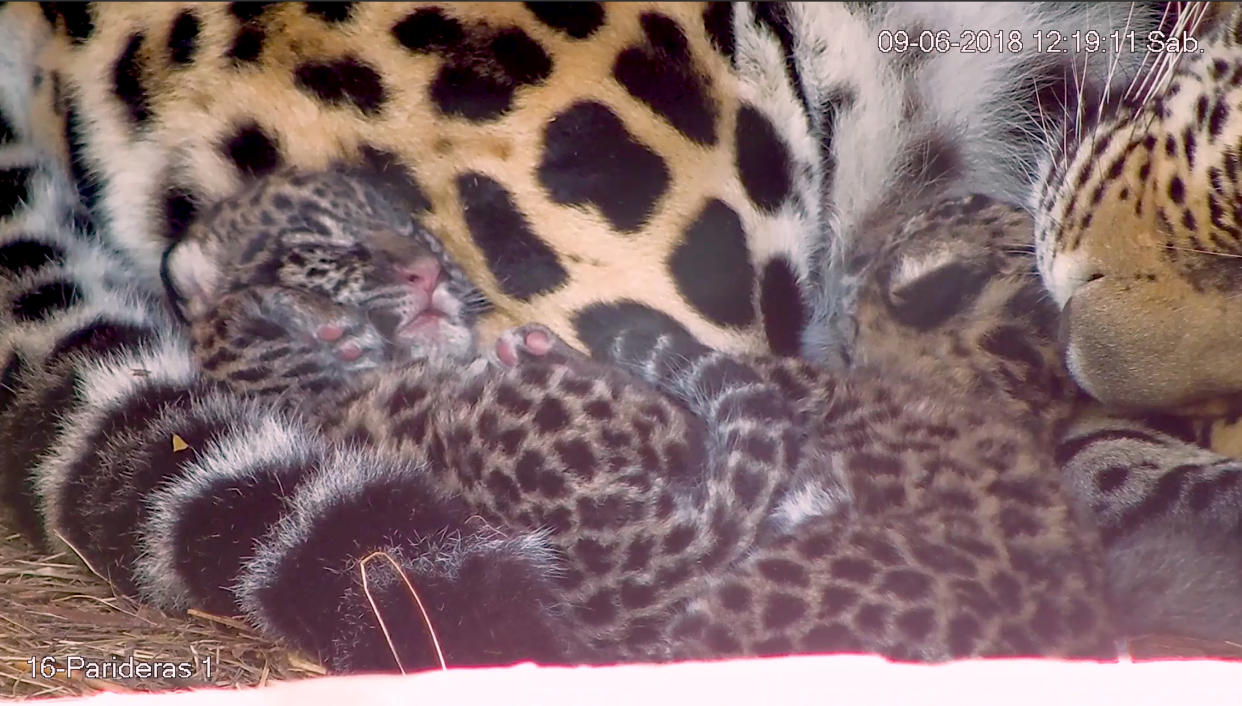First jaguars born in Argentinian forest where they went extinct 70 years ago

A captive-born jaguar released into Argentina's Iberá National Park last year has given birth to two cubs - the first to be born wild in the protected wetland in 70 years.
A hidden camera confirmed keepers' suspicions of the happy event, showing the mother jaguar caring for her offspring in the 1.8-million-acre Iberá Park.
The cubs' parents were released last year: Jatobazinho, a rehabilitated wild jaguar from Brazil, and Arami, the first jaguar cub born in 2018 at the Jaguar Reintroduction Center in the wetlands.
According to Sebastián Di Martino, Conservation Director of Rewilding Argentina, "The rewilding program seeks to recover the ecological functionality of the wetlands by bringing back missing species. As the top predator, the jaguar has a key role to play."
In Argentina, jaguars have lost over 95% of their original range. The jaguar program, which started in 2012, has successfully released eight jaguars into Iberá Park. One of South America's largest and most important watersheds, the Iberá wetlands suffered massive devastation in February 2022, when wildfires burned 10% of Corrientes province, including 60% of Iberá National Park.
Rewilding, which helps restore natural processes, is an essential tool in helping the wetlands become more resilient in the face of climate catastrophes. Key species, like the largest feline of the Americas, play a fundamental role in the structure and functioning of ecosystems; their return restores health and integrity, essential components that help mitigate the global loss of biodiversity, climate change and the appearance of pandemics.
It is estimated that between 200 and 300 jaguars remain in Argentina.


